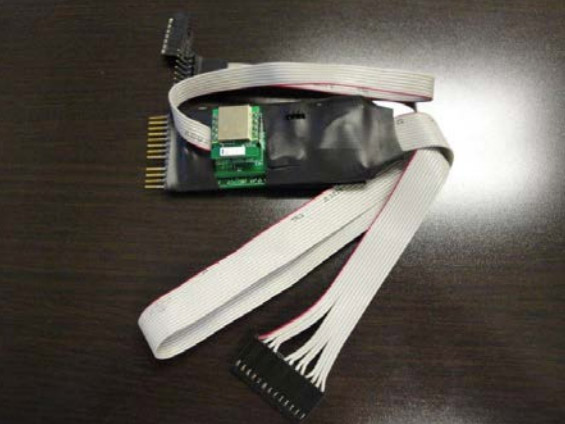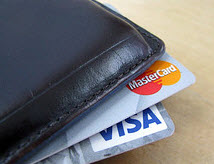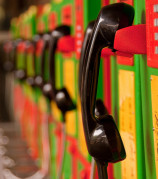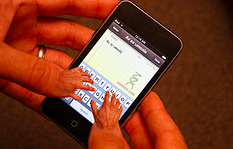Bitcoin has recently been dominating the headlines with stories about the possible outing of the mysterious inventor, college groups handing out the virtual currency to students and some kind of new cologne. But for all the popularity the new form of payment has garnered, the Securities and Exchange Commission is warning investors of the dangers posed by the currency. [More]
scammers

Officials Bust Two Men Accused Of Peddling Fake Premium Super Bowl Tickets
Whenever there’s a big event in town, people are going to start looking for any kind of deal they can score to get in. And when those people go searching, inevitably scammers find them and try to sell unsuspecting fans fake tickets. This year’s Super Bowl is no different, as officials say two men have been accused of shilling bogus tickets to the big game and fake passes for cushy parties in New York. [More]

Tiny Bluetooth Card Skimmers Will Make You Hug Your Debit Card
It’s probably not a good idea to use your debit card at the gas pump. Not because we have anything against debit cards, but because we’ve learned of yet another group of criminals who planted invisible card skimmers in pay-at-the-pump machines at gas stations in the southern United States. [More]

Months After Newtown School Shooting, Facebook Finally Gets Around To Dealing With Scammy Tribute Pages
It’s been more than two months since the tragic shootings at Sandy Hook Elementary in Newtown, CT, and just as long since heartless, greedy scammers immediately jumped on the event as an opportunity to enrich themselves with fake Facebook pages. Now the site is finally doing something about it. [More]

Here's Why You Shouldn't Carry A Large Balance In Your Skype Account
Some strange things happened to Rob’s Skype account recently, Scammers drained his account balance and tried to steal money from his credit card, too. While his credit card remained untouched, and his account is now secure, he’d still like that stolen balance back. Skype is awfully sorry, but he’s not going to get that money back. [More]

A Site That Sells Stolen Credit Cards And Slaps Scammers With Fees
We’d heard that credit card information can fetch as little as $1.50 on the open market, but we never really thought about what the experience of actually purchasing the info was like. Well, it turns out that buying a stolen credit card is a process riddled with fees. Who knew? [More]

"I Bought It From Yahweh" Is Not A Good Defense For Squatting In Foreclosed House
Here’s a tip to anyone looking to squat in a foreclosed home — People probably won’t believe you if you tell them you purchased the property from Yahweh (aka God, aka Big Man in the Sky). It’s a lesson a Montana man learned this week after being convicted of not only illegally living in a home that wasn’t his, but also trying to use it as collateral for a loan. [More]

Don't Fall For Job Scams
The Federal Trade Commission has a website at www.ftc.gov/jobscams with information on the types of scams you’re likely to find in Help Wanted listings. They’ve also put together a short video (below) that describes how scammers try to charge job hunters fees to pay for job certification, or to provide access to executive-level interviews, or to acquire study materials that are supposedly crucial to passing a hiring exam. It’s a good refresher course in what to look out for when you’re answering ads. [More]

Short Interview With A Possible 419 Scammer?
The UK website Scam Detectives has published a two-part interview with a self-described former Nigerian 419 scammer. Take all of this a healthy dose of skepticism–the author admits he has no way of verifying if anything the guy says is true. Oh, and the reason I call it a short interview is because halfway through the second call, the author tells the scammer he doesn’t like him and wants to hang up. Before that happens, though, you get to read about foot soldiers, something called a wash wash, and the response rate on scam email blasts. [More]

Don't Let An Unknown Caller Talk You Into Downloading Software
In the wide world of scams, this combination of a phone call and computer malware is sort of a novel twist. Jay likes to string phone scammers along to waste their time, so he managed to get quite a few details about how this particular scam works. If you’ve got naive family members with access to computers, either take away their computers or tell them never to download software from a stranger on the phone. [More]

PayPal Abandons Another Scammed Seller
Todd got ripped off by a scammer on an eBay purchase. He made sure to insure the device before shipping it off via the United States Postal Service, but it turns out that an insurance claim won’t help him get PayPal to step up. [More]

Diablo 2 Scammer Inadvertently Shines Spotlight On Self
Robert usually writes about energy and the environment on his blog. However, he recently ran into a scammer online, and surprised the scammer by fighting back: [More]

Don't Donate Money To Public Safety Organizations Over The Phone
The website Consumer Affairs (which is not related to us or our owners in any way) is warning people in Oregon to watch out for calls from people asking for donations on behalf of local police or fire departments. It’s a good reminder to everyone that telephone solicitations should be ignored: “At best, the solicitor will probably take the lion’s share of your donation. At worst, the caller is an outright fraud,” the site reports.

Scammer Picks Wrong Sympathy Handicap
Any good grifter knows that a classic shortcut to sympathy is to fake a handicap. This guy, however, should have thought about the distancing effect of using a telephone relay service, which is designed for people who are hearing impaired.

Scammers String Along 82-Year-Old For Four Years, Leave Him Penniless
Here’s another reason to have a sit-down with your elderly relatives and make them promise that if they ever, ever find out they’ve won some money in a lottery they didn’t enter, they should tell family members immediately.

Skimmers Rig Door Instead Of ATM
Last week, a customer in Long Beach, New York, discovered a skimmer attached to the outside of a local ATM branch instead of on specific machines. We’ve talked a lot about being wary of any suspicious add-ons at the ATM, but in this case the criminals were collecting card info as people swiped to enter the building—although they still had pinhole cameras set up to record PINs next to each keypad.




